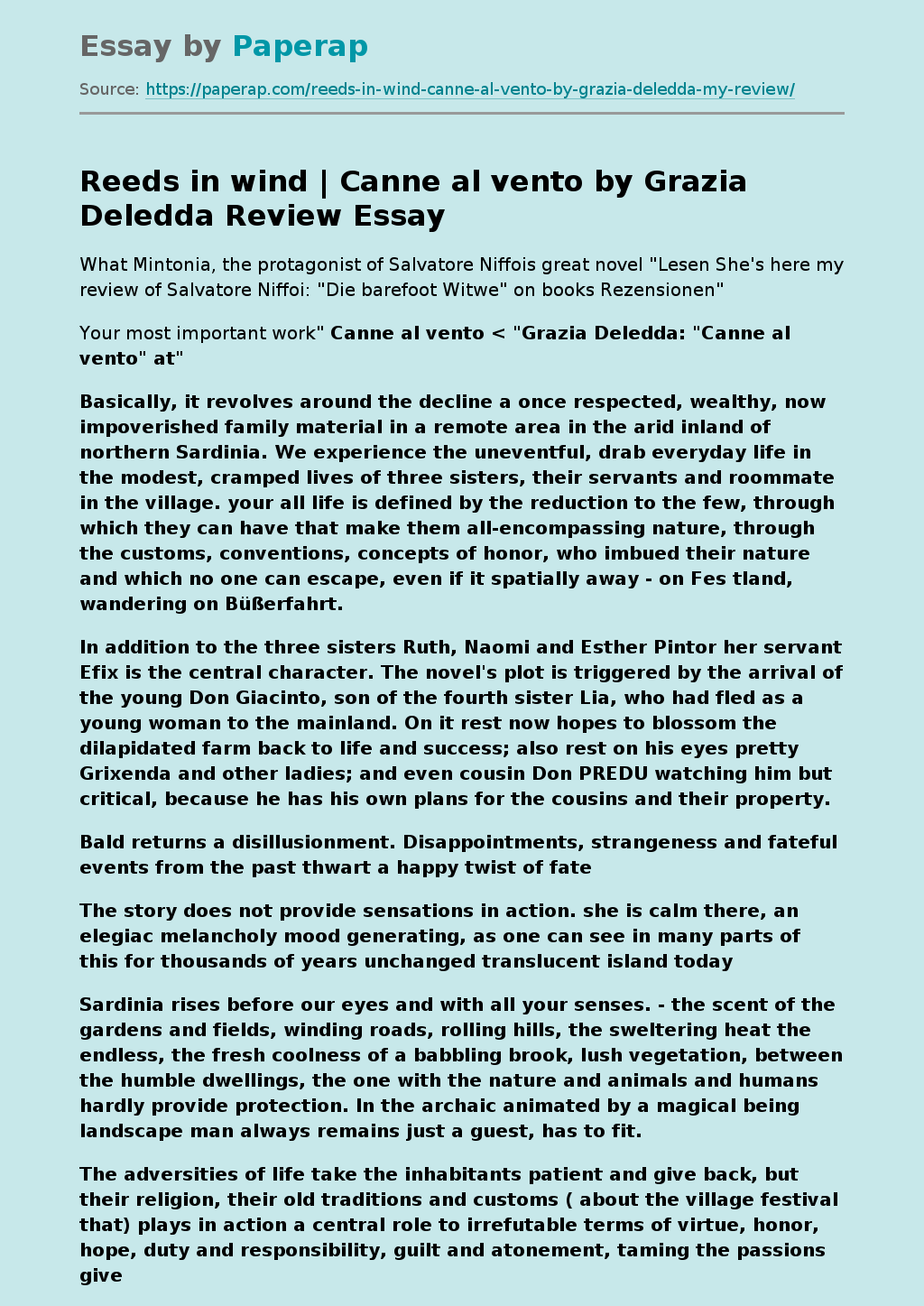Reeds in wind | Canne al vento by Grazia Deledda Review
What Mintonia, the protagonist of Salvatore Niffois great novel “Lesen She’s here my review of Salvatore Niffoi: “Die barefoot Witwe” on books Rezensionen”
Your most important work” Canne al vento < "Grazia Deledda: "Canne al vento" at"
Basically, it revolves around the decline a once respected, wealthy, now impoverished family material in a remote area in the arid inland of northern Sardinia. We experience the uneventful, drab everyday life in the modest, cramped lives of three sisters, their servants and roommate in the village.
your all life is defined by the reduction to the few, through which they can have that make them all-encompassing nature, through the customs, conventions, concepts of honor, who imbued their nature and which no one can escape, even if it spatially away – on Fes tland, wandering on Büßerfahrt.
In addition to the three sisters Ruth, Naomi and Esther Pintor her servant Efix is the central character. The novel’s plot is triggered by the arrival of the young Don Giacinto, son of the fourth sister Lia, who had fled as a young woman to the mainland.
On it rest now hopes to blossom the dilapidated farm back to life and success; also rest on his eyes pretty Grixenda and other ladies; and even cousin Don PREDU watching him but critical, because he has his own plans for the cousins and their property.
Bald returns a disillusionment. Disappointments, strangeness and fateful events from the past thwart a happy twist of fate
The story does not provide sensations in action.
she is calm there, an elegiac melancholy mood generating, as one can see in many parts of this for thousands of years unchanged translucent island today
Sardinia rises before our eyes and with all your senses. – the scent of the gardens and fields, winding roads, rolling hills, the sweltering heat the endless, the fresh coolness of a babbling brook, lush vegetation, between the humble dwellings, the one with the nature and animals and humans hardly provide protection. In the archaic animated by a magical being landscape man always remains just a guest, has to fit.
The adversities of life take the inhabitants patient and give back, but their religion, their old traditions and customs ( about the village festival that) plays in action a central role to irrefutable terms of virtue, honor, hope, duty and responsibility, guilt and atonement, taming the passions give them the strength to withstand, as the title in reflects his striking image
Notes on film and audio versions.
 Overview “The best Sardinian films from a hundred years” in Books Reviews “
Overview “The best Sardinian films from a hundred years” in Books Reviews “
Reeds in wind | Canne al vento by Grazia Deledda Review. (2019, Nov 18). Retrieved from https://paperap.com/reeds-in-wind-canne-al-vento-by-grazia-deledda-my-review/

